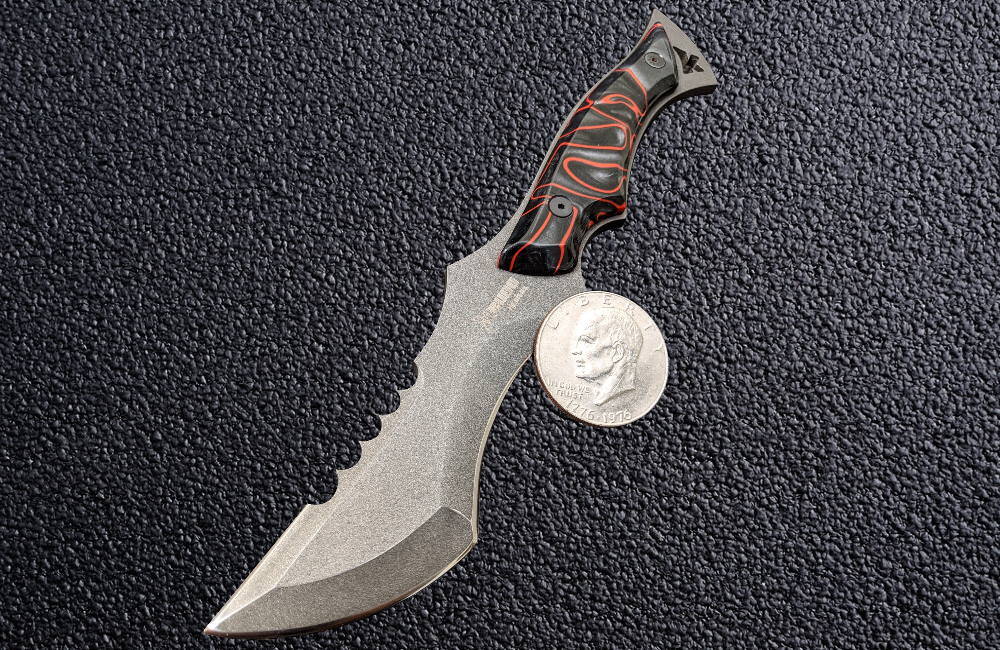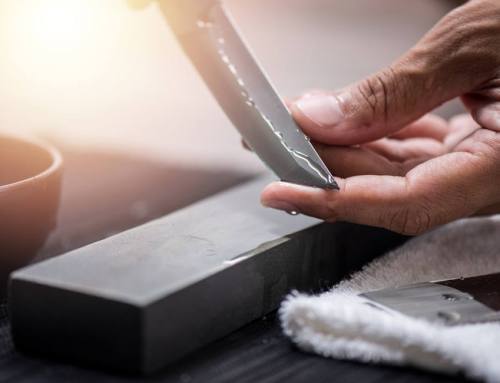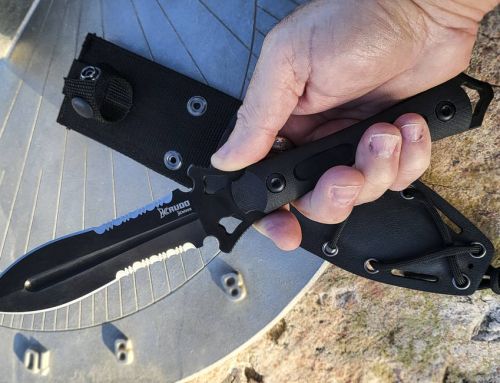Knives have been a part of people’s lives for centuries. To this day, they rank among the most useful tools you can own. But because they have played such a central role in the lives of millions of people, it’s not surprising that interesting knife traditions and knife superstitions have developed over the years.
Most have their roots in ancient cultures who explained the world with stories and based belief systems on anecdotal evidence. For example, if you slept in a bed with knives beneath it and evil spirits never attacked you, then of course the knives offered protection from evil spirits. At least, that’s what people in ancient China believed.
That’s just one example. Here are six more knife superstitions and knife traditions from the ancient world. While some still hold these to be true, KRUDO Knives likes to err on the side of caution & recommend you not try anything that may cause harm or fights with your friends & family.
Protection
If you drive a knife into the door of your home, it’s traditionally believed to offer protection for everyone inside. This ancient practice stems from the belief that the knife’s presence wards off evil spirits and brings safety to the household. While this might have been a common and respected belief in the past, attempting such a ritual today could have quite the opposite effect. Instead of warding off danger, you might find yourself in need of protection—from your spouse’s reaction! Times have changed, and so have our methods of ensuring safety at home.
Gift a Knife With a Coin
Gifting a knife, especially to someone close, is often seen as bad luck because it can symbolically “cut” the relationship. To avoid this, many cultures have a simple solution: include a coin with the knife. The recipient then gives the coin back to the giver, “paying” for the knife, which counteracts any bad luck and keeps the relationship intact. This charming tradition helps ensure that your bond remains strong and uncut.
Bad Luck
When it comes to bad luck, knife superstitions are quite colorful. For instance, they say you should never close a knife if someone else has opened it. Doing so is believed to bring bad luck. Another intriguing belief warns that if a knife falls and sticks into the floor, misfortune is sure to follow for the owner.
And here’s a quirky one: never stir your stew or soup with a knife. Supposedly, this will “stir up” trouble. These age-old superstitions show just how much knives are thought to influence our luck and fate.
Blood
Some ancient knife traditions hold that you never truly own a knife until it has “tasted” your blood. In some practices, you’re meant to use your new blade to draw a small amount of blood from your hand, symbolically bonding the knife to you. Additionally, it’s believed that a knife should never be sheathed after battle unless it has drawn blood; otherwise, it may fail you when you need it most.
The Great Beyond
Every culture had their own traditions for what to include in a tomb or coffin for the dead to take with them into whatever lies beyond. In Anglo-Saxon cultures, relatives or friends sometimes buried a knife with the dead so they would not reach the other side without protection.
Crossing Knives
A knife crossing another knife, or even a utensil, had different meanings in different cultures. For example, in Ireland it meant a fight was going to happen soon (but of course). In Italy, it meant an insult to the symbol of the cross.
That’s a taste of the many traditions and superstitions that have grown around knives through the centuries. As one of man’s earliest and most useful tools, it’s not surprising that many beliefs have sprung up around knives – both what you should and should not do.
The Timeless Charm of Knife Superstitions
Knife superstitions and traditions highlight our deep cultural ties to these everyday tools. Whether it’s to avoid bad luck, protect relationships, or follow ancient customs, these beliefs add a fascinating dimension to how we view knives. Next time you use a knife, consider the rich history and lore that accompany it. Embracing these superstitions not only connects us to the past but also adds a touch of magic to our daily lives.







You will move or leave your home if your knife turns with the blade upward.